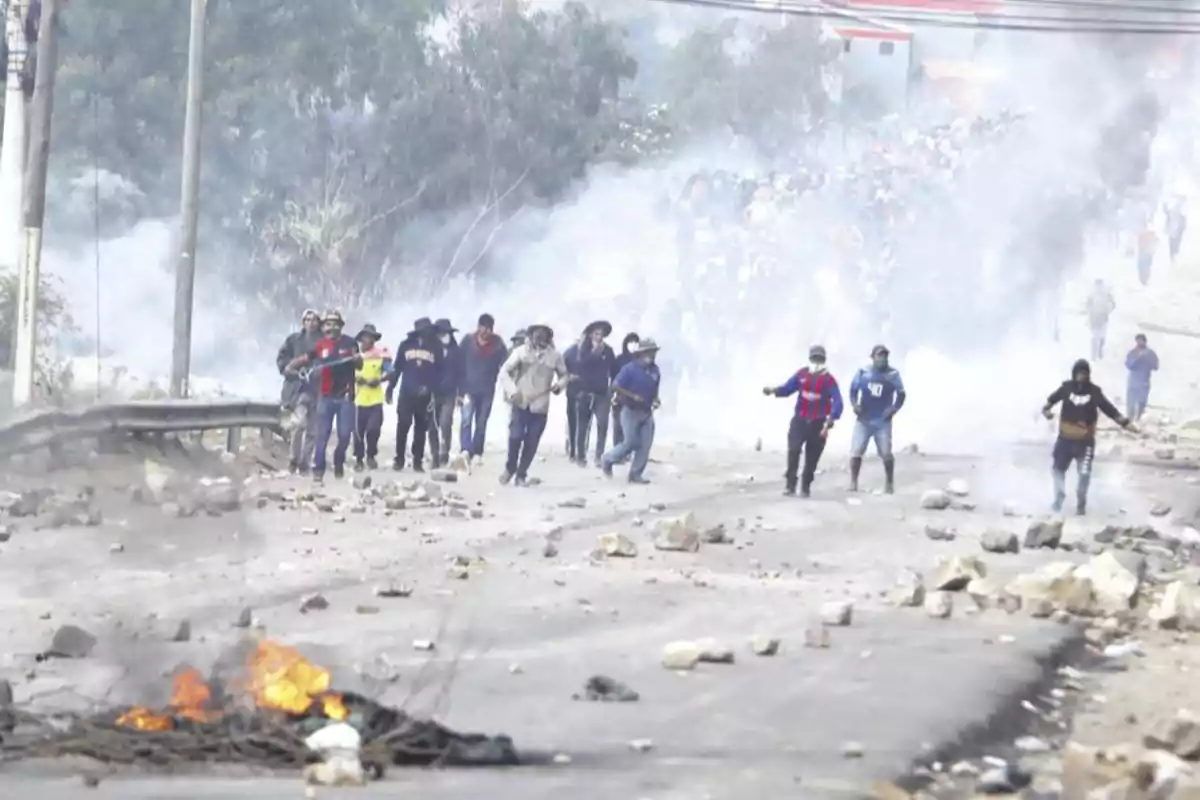
'Humanitarian pause': Evistas announced a halt to their violent demonstrations
After having killed four police officers and one civilian: Morales's supporters warned that they are preparing further measures
The so-called "Unity Pact," made up of organizations aligned with Evo Morales, announced a "humanitarian pause" in the road blockades on Sunday. The decision comes after two weeks of demonstrations that left five dead, including four police officers.
Despite the announcement, this Monday seven active blockade points were reported in Cochabamba. The affected roads connect the west with Santa Cruz and continue to cause disruptions. The measure has not succeeded in restoring normal traffic flow.
The "pause" was communicated through a directive signed in La Paz by leaders loyal to Evo. In the document, they accuse Luis Arce's government of "brutal repression" against the mobilized offenders.
They also denounce an alleged "economic collapse" caused by current socialist policies. They claim that the country is experiencing a crisis in fuel, food, and medicine supplies. For this reason, they demand an international investigation into the violent events.
The organizations declared national mourning for the murders in Llallagua and Arque. They accuse the government of having used lethal weapons against the mobilized population.
Meanwhile, they demand the release of the offenders from CSUTCB and CSCIOB, who were detained by court order. They warn that urban marches and pot-banging protests will continue. Their stated goal is to force Luis Arce's resignation.
Blockades persist
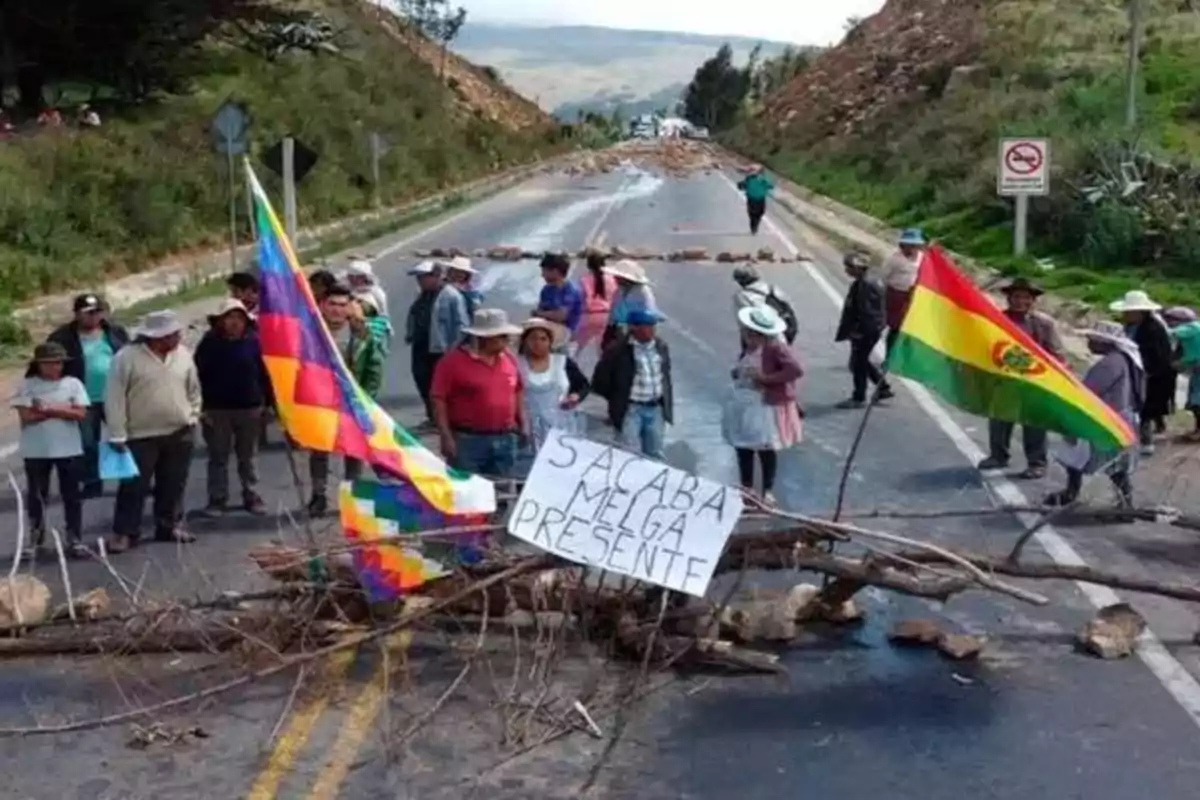
While the Unity Pact insists on a discourse of peaceful resistance, road actions have not ceased. According to reports from the Bolivian Road Administration (ABC), there are still blockades on key routes.
The points are located on the new and old highways between Cochabamba and Santa Cruz. Traffic between both regions remains paralyzed. Travelers have been stranded for days.
Among the affected points are Villa Tunari, Puente San Pedrito, and Puente Lágrimas. On the old road, blockades persist in Colomi, Cruce Pocona, Tutimayu, Vacas, and Lope Mendoza.
The bus terminal in Cochabamba suspended all departures to Santa Cruz. In Santa Cruz, the same is happening with trips to the west. The "humanitarian pause" has not been reflected in concrete actions.
Widespread rejection of Evo-aligned violence
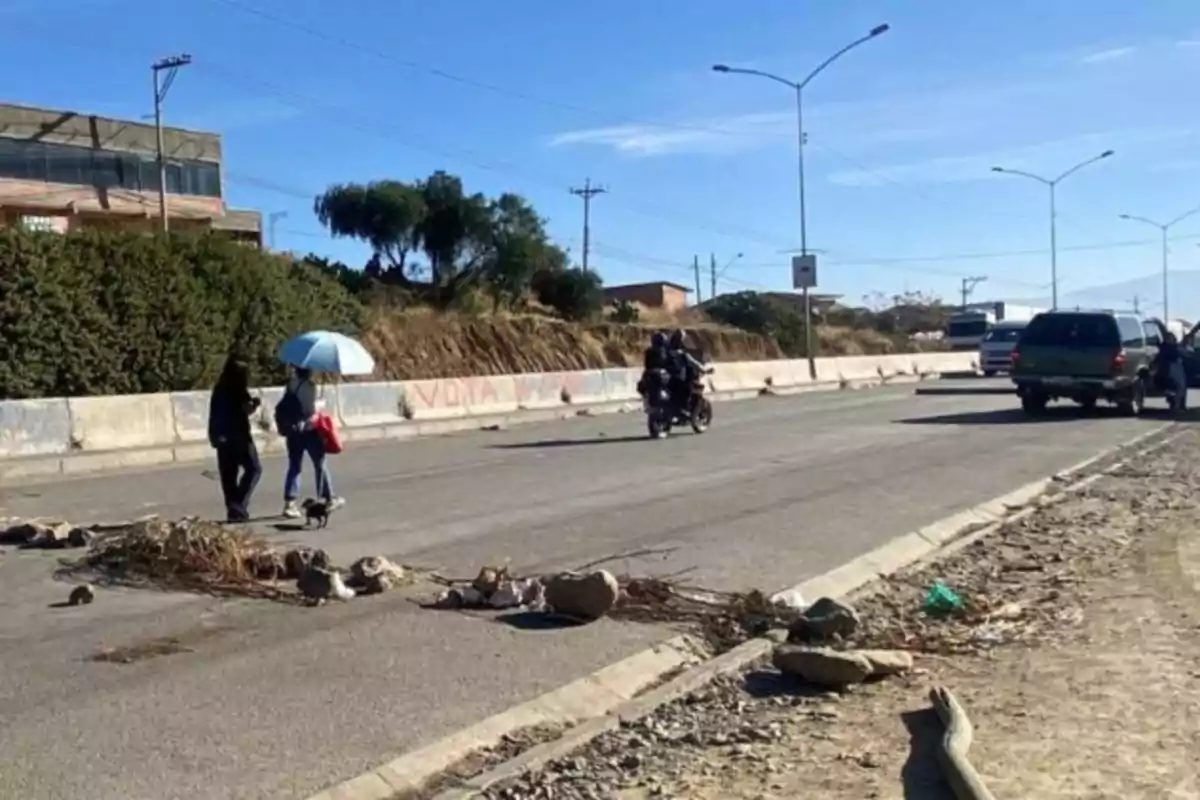
The population affected by the blockades rejects the Evo-aligned demonstrations. Merchants, transport workers, and families report shortages of products and rising prices.
Many sectors believe that the protests worsen the economic crisis instead of resolving it. Public discontent is evident on social media and in local media outlets. There is a growing sense of national exhaustion.
National authorities also reported the persistence of blockades despite the suspension announcement. The Minister of Government indicated that there is no real willingness for dialogue on the part of Evo's supporters.
He also held the mobilized leaders responsible for the acts of violence. He stated that the attacks and deaths recorded in recent days are under investigation. The situation remains tense.
The murderers seek impunity
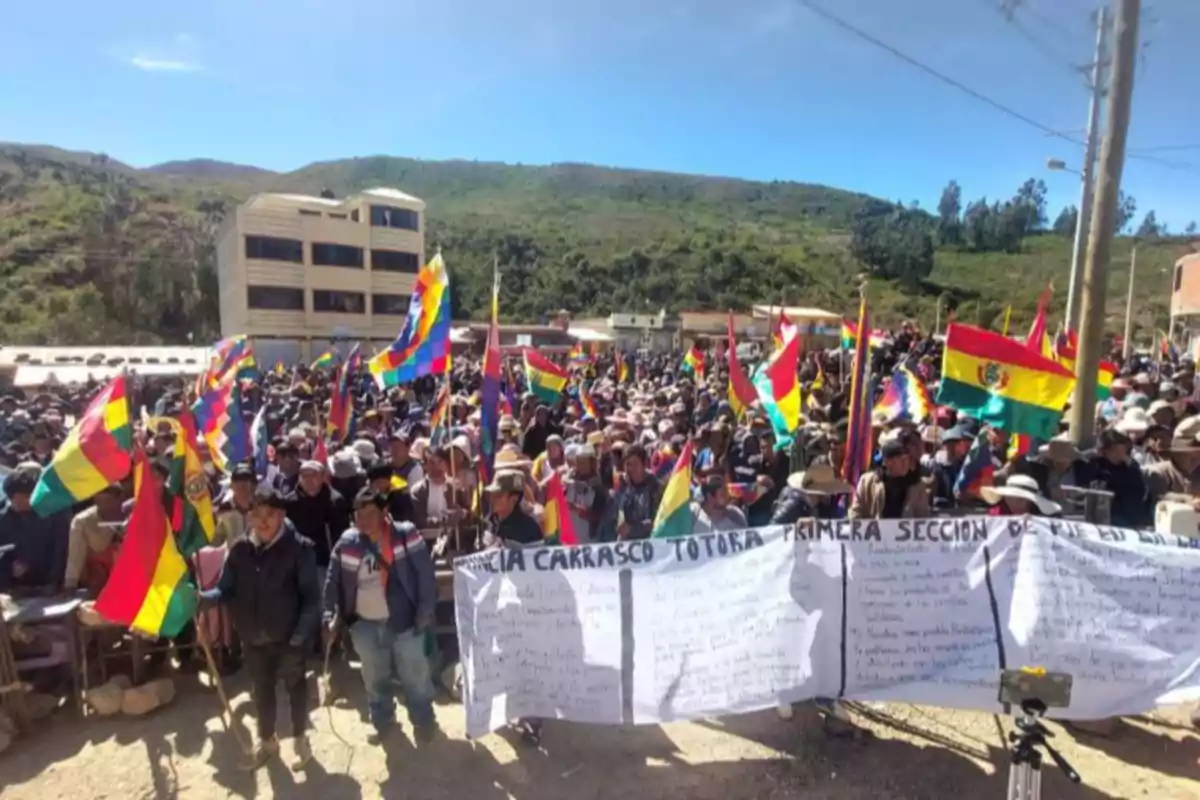
The Evo-aligned movement, however, is intensifying its accusations against the Government. They claim that paramilitaries have infiltrated the protests to discredit their struggle. They reported attacks on union headquarters and threats against social leaders.
They blame public officials for reorganizing violent groups such as the Cochala Youth Resistance. They also mentioned an attack against Wilma Alanoca.
The Unity Pact's narrative is aimed at internationalizing the conflict. They have requested an external and independent investigation into recent events. They insist that their protest is legitimate and peaceful.
They do not acknowledge responsibility for the deaths that occurred during the blockades. They have not provided assurances that all blockade points will be lifted.
In parallel, the national government reiterates that it is open to dialogue. However, it demands the complete lifting of the pressure measures. It keeps that the blockades are illegal and threaten social peace.
It emphasizes that the national economy is being severely affected by these actions. It calls on the mobilized groups to prioritize the country's well-being.
The demonstrations that began more than fifteen days ago have had a considerable impact. The supply of food, medicine, and fuel has decreased in several regions.
Interdepartmental transportation is paralyzed on several key routes. Economic losses are beginning to accumulate according to business reports. The social cost is also measured in the population's discontent.
Has the conflict ended?
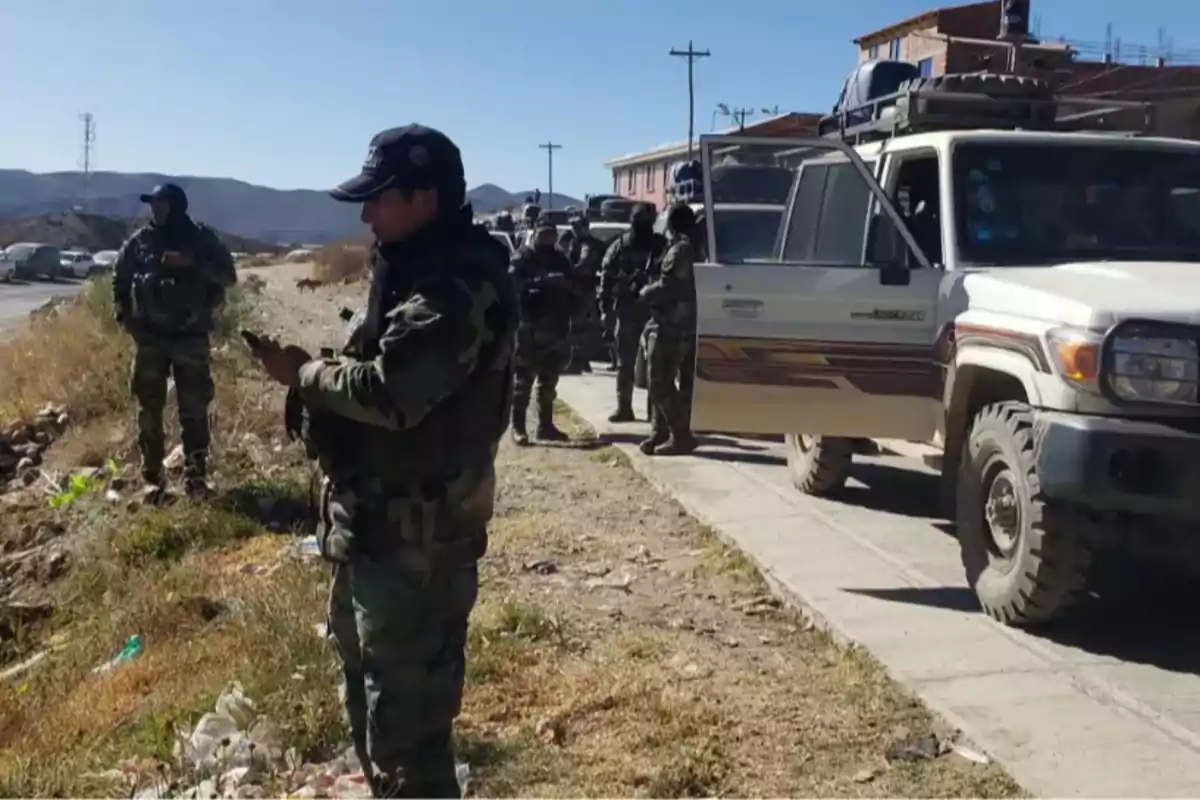
In departments such as Oruro, Potosí, and Chuquisaca, the blockades have been lifted. However, Cochabamba remains the epicenter of the conflict. The last strongholds of Evo-aligned resistance are concentrated in that region.
The flow of vehicles continues to be interrupted at at least seven points. The affected parties demand a definitive solution, not just a temporary one.
The organizations aligned with Morales maintain that their actions will continue in other forms. Although they claim to have ordered a pause in the blockades, they maintain their call to protest.
Marches in the cities and vigils will remain in effect. New measures are also expected if the government doesn't yield to their demands. The confrontation still appears far from over.
Some analysts point out that this "humanitarian pause" could be a strategy to buy time. Social pressure has increased both in the cities and in rural areas. As long as there is no total dismantling of the blockades, the conflict will remain active.
More posts: